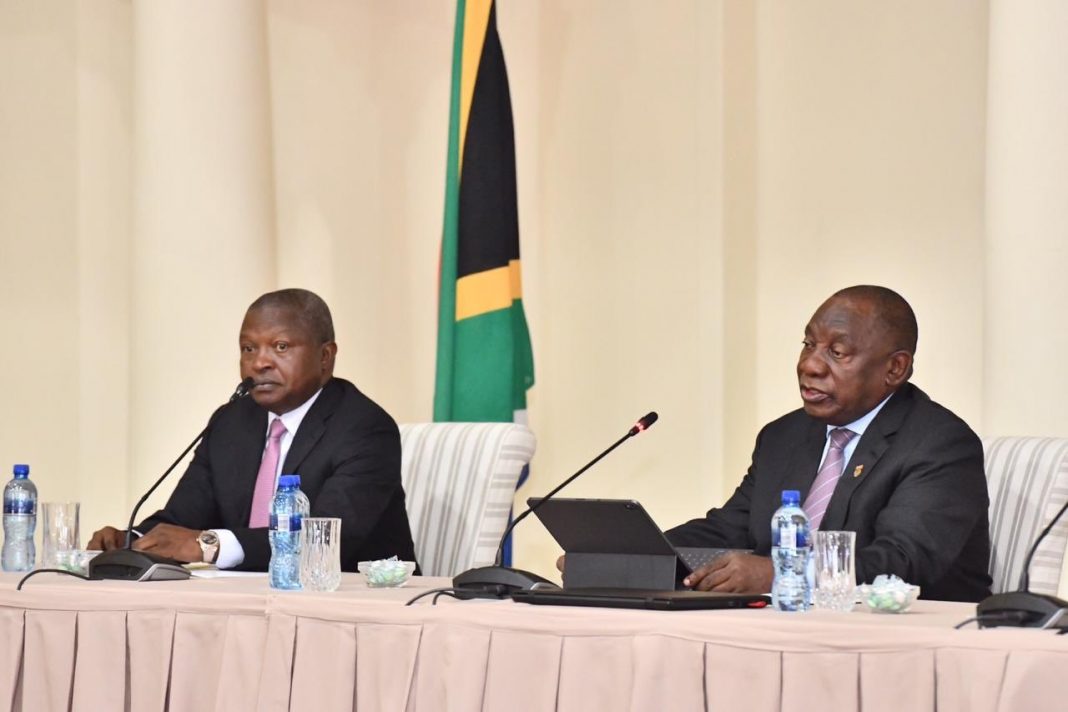Cyril Ramaphosa
There comes a time in the affairs of a country when,
in the face of the most formidable of challenges, its very existence as a
nation is put to the test.
The coronavirus pandemic continues to spread at a relentless pace across the
globe. As nations of the world we find ourselves in the same fight: to contain
the virus, to protect the lives of our people, and to fortify our economies
against the inevitable disruption to manufacturing, productivity, growth and
employment.
It has been a week since we declared a National State of Disaster as an urgent
response to the outbreak and put in place necessary containment measures.
These measures relate to the prohibition of gatherings of more than 100 people,
restrictions on people entering the country, the closure of schools, the sale
of alcohol and emergency procurement procedures in support of the fight against
COVID-19.
The Department of Health, supported by the entire government communications
machinery, has led efforts to raise awareness among the general public around
screening and detection, prevention, hygiene control and the importance of
social distancing.
The manner in which all South Africans have taken charge of not just their own
personal health but the health of those around them has been exemplary and
heartening.
Everywhere we see signs of behavioural change as the
nation rallies behind infection control measures.
From filling stations to taxi ranks, from spazas to restaurants, South Africans
fully understand the gravity of the situation.
Hand-washing is being practiced and hand sanitiser
is available in stores and other retail spaces. People are observing the rules
restricting large public gatherings. Businesses and workplaces are complying
with the regulations in the best interests of their customers and employees.
Last week representatives from all the political parties in Parliament stood
united on a public platform to declare their support for the national effort to
combat the pandemic.
At the same time, they offered practical and workable
suggestions on how we can mitigate its impact on lives and livelihoods.
In the same week, religious leaders representing a multiplicity of faiths and
denominations also affirmed their support, taking bold and far-reaching
decisions to contain the spread of the virus in churches, temples, mosques and
synagogues.
They did so fully understanding that no matter how
sensitive and difficult these decisions are, the sanctity of life must be
preserved.
Corporate South Africa and the business community have stepped up, affirming
their support for the emergency measures and regulations, and opening channels
of engagement around the economic impact of COVID-19.
Yesterday, I met with representatives of the
business community to discuss measures we need to take together to combat the
pandemic and address its economic impact.
Elsewhere, large retailers have issued directives restricting the purchase
quantities of in-demand items to curtail so-called ‘panic buying’.
This measure was a laudable effort to protect the rights of ordinary South Africans, but most especially the poor.
It is also a welcome sign that South African
business will not engage in unscrupulous profiteering from a national disaster.
This week I will be meeting with different arms of the state, trade unions,
traditional leaders, civil society formations and other sectors.
I have no doubt that they too are already mobilised
and united behind the national effort.
What we are witnessing is social solidarity in action, a defining feature of
our nationhood.
At times of crisis such as this one, it would be easy to surrender to the impulses of opportunism, greed and naked self-interest.
History bears witness to the dark side of human
nature that can be exposed when fear and panic takes hold.
But as the South African nation we are standing firm.
As we navigate our way through the difficult times that lie ahead, we must continue in the spirit of empathy and selflessness and move with unity of purpose.
The social compacts of which I have spoken are needed now as never before.
Of these, the social compact between citizens and
their government is the most important of all.
I am a firm believer in the people. I also believe, as Abraham Lincoln once
said, that “if given the truth, [the people] can be depended upon to meet any
national crisis”.
We know the truth and what is to be done. We have to contain the spread of the
virus. We have to ensure those who need help get it. We have to observe the
highest standards of hygiene and practice social distancing.
Our success relies on the effort and energies of every citizen and their
commitment to help and assist others.
This crisis will not debilitate our nation. In how we have responded, we have
affirmed the true character of our nationhood.
It is strong, it is resilient and, above all, it is
rooted in solidarity.
It is these attributes of our national character that won us our democracy and
it is what will ensure our victory over this pandemic.

